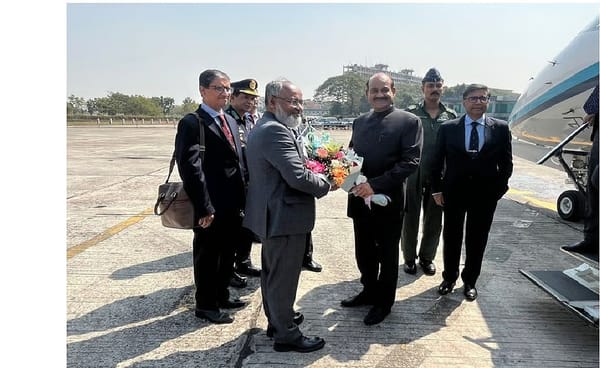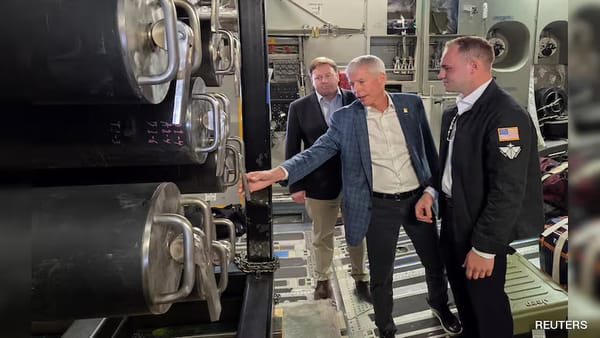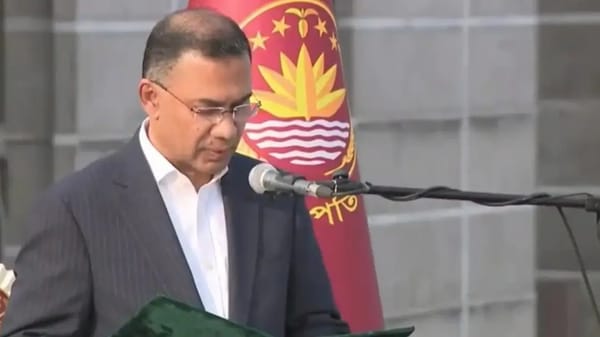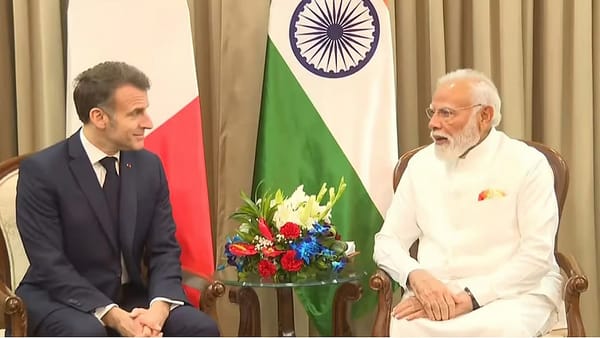Amit Virmani and “Menstrual Man”
This story of Muruganantham comes alive; his travails, his vision are all retold skilfully in the feature documentary Menstrual Man with lively wit and humour and some Bollywood numbers thrown in to enliven the production. This runaway hit film, capturing international media attention is the second
 |
| A scene from the documentary, Menstrual Man |
Give a man a fish and he will eat for a day; teach a man to fish and he will eat for a lifetime. If you teach a woman to fish, the story changes; it feeds the family, the village, and the community and thus helps in the progress of the society. This is exactly what Mr Muruganantham has to say, “Empower the woman, give her a livelihood then her family is saved; she educates her children, the society is empowered and eventually the country!”
Arunachalam Muruganantham, a ninth standard drop out from Coimbatore, due to untimely death of his father and poor economic conditions had to stop studying and work in a work shop to support his mother and sisters at a tender age. In witty and stylised English (Tonguelish) which he calls his own style, he asks the listener to automatically correct the grammatical errors and fill in as we listen. He enraptures the listener with his down to earth attitude, simplicity and good – heartedness. He particularly captures a woman’s heart as he transgresses into and helps her in that particular field that woman themselves consider a taboo to discuss.
He created, designed, tested, and developed simple sanitary napkin machines for producing sanitary napkins on a large scale at a low cost ( Rs1 to 1.50 per pad) thus reaching it out to the poor women to help themselves to a healthful lifestyle as well as sustain themselves economically. He provides these machines to self- help groups, NGOs, groups run by women all over India. His mission and vision is to make India a 100% sanitary napkin country, and in the process wants to create a movement to empower women!
His start-up company, Jayaashree Industries, has now delivered over 900 machines across India and is now moving on to Africa, Nepal and Bangladesh. In 2009 his invention won him the Best Innovation National award from the President Pratibha Patil and he is now a much sort after speaker across the globe.
This story of Muruganantham comes alive; his travails, his vision are all retold skilfully in the feature documentary Menstrual Man with lively wit and humour and some Bollywood numbers thrown in to enliven the production. This runaway hit film, capturing international media attention is the second film made by Amit Virmani, a Singapore based Indian. Amit is a graduate of South-western University, Texas, honoured with the Feminist Voices Award.
Amit’s debut film Cowboys in Paradise also had an offbeat theme. The synopsis of which goes like this…. “Each year, thousands of women travel to Bali in search of paradise. And many find it in the arms of Kuta Cowboys, the bronzed beach ambassadors who’ve made the island one of the world’s leading destinations for female sex tourists…..The movie was well received, featured on CNN, BBC and got international recognition for the director as well as for the “Cowboys”.
Menstrual Man premiered at Full Frame Documentary Festival, Durham, USA; Hot Docs, Toronto, Canada; at VSFF, Vancouver, Canada; Dharamshala International Film Festival, India; many venues in Singapore and will feature in IDFA, Amsterdam (European premiere) and Human DOC Int’l FF, Poland in November.
I caught up with Amit Virmani and here are his answers to my queries:
 |
| Amit Virmani- Director of documentary, Menstrual Man |
What got you interested in movie making?
I always loved films. The idea that I could make them came around the time I was in university. I was studying near Austin, which is a great 'film town', especially in terms of indie filmmaking. Robert Rodriguez, Richard Linklater, they all burst into the scene when I was studying there, and they made us realise that you could make great films without much money or studio support.
When and how did you come to know about Mr Muruganantham's enterprise?
December 2011. It was pure dumb luck. He wasn't as well known internationally then as he is today. A friend sent me a link to a magazine article. Minute I read about him, I knew it was the story I wanted to tell. Two weeks later I was sitting face-to-face with him in Coimbatore.
What difficulties did you face taking the movie "Menstrual Man"?
None really. Nothing beyond the usual budget headaches. Everything else is part of the adventure, the journey. Some people pay to travel off the beaten path, I go and make films.
How is the response of the people of Singapore to your movies?
Absolutely gratifying. The other remarkable thing is we saw our audience grow with each screening. Our first run was in August. We added a second in October because folks wrote in asking how their friends could see the film.
Your movie Cowboys in Paradise seem to have back lashed against the Beach boys with their arrests and detentions. This has robbed the Boys of their livelihood and women of sexual favours enjoyed. Any regrets for taking the movie?
No, I'm very proud of the movie. People who watched the film -- as opposed to passing judgment based on a 2 minute trailer -- loved it. More importantly, those who're familiar with Bali, and that includes neutral Indonesians, ex-Cowboys and many women who have Cowboy boyfriends, thought the film was fair.
One key point: It's not my concern, but if you're worried about women being robbed of "sexual favours enjoyed," don't. The Cowboys never went away.
What are the accolades received for Cowboys in Paradise
For Cowboys... festivals, broadcast on leading international channels including CBC and RT. And incorporated into women's studies curricula at more than 90 universities worldwide. So yeah, there are enough people out there who recognised the film as valuable post-colonialism commentary.
You have introduced Bollywood scenes in Menstrual Man, what made you do that, and how do you feel it is relevant?
For me the decision to use film footage was an obvious one. Cinema is a huge part of Indian culture. It shapes us, informs our worldview. So it works on a meta level. Plus I saw a lot of similarities between Muruganantham's story and many Indian films' narrative arc.
I thought there was a Malayalee elderly lady (from her diction) buying a unit for installation at her place, in the movie. Who was that and where?
Think you're referring to Sister Teresa. She's actually based in Nadupatty, TN. Been there some 36 years, helping the villagers there. Incidentally, Nadupatty gets something like 3 hours electricity a day. So her sanpad facility was barely operational. We helped raise money so she could buy a generator. There's a sign outside the ‘Nalam’ production facility today that reads: "Powered by best wishes from the Singapore audience of Menstrual Man."
This disposal of the used napkins could cause another environmental hazard, as in India there are no proper methods of disposal especially in rural areas. How is Muruganantham planning to tackle this? Your movie does not explore this aspect.
It doesn't because it's a first world concern to a developing world problem. I should say, "first world hypocrisy". Addressing it would be insulting to the people in the film.
Rural Indian women will dispose pads the same way people in affluent societies dispose their Coke cans and Kit Kat wrappers. Some will dispose them the right way, and others won't. What won't change is this: a rural woman can use 10x the number of pads she needs to, and she could use them every day of the month, and her carbon footprint still wouldn't come anywhere near yours and mine. So the real question is: how much of our own consumption do we reduce before we have any moral right to deny rural women menstrual hygiene?
Well, I shot a mail to Mr Muruganantham about my concern about the disposal of the sanitary napkins his reply… ‘The pads made on our machines are bio- degradable and water soluble’.
The endeavour of both these people deserve commendation, the social entrepreneur and the movie maker.
Menstrual Man was screened, rerun due to popular demand, at The Arts House from 21st to 27th Oct with Q & A sessions with the director Amit Virmani on certain days.




